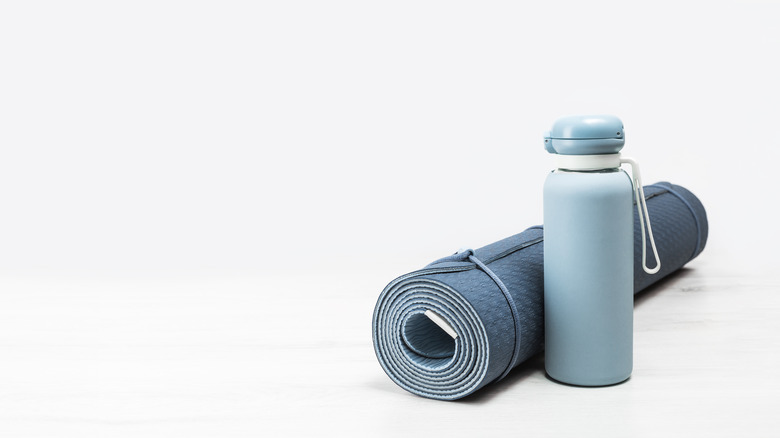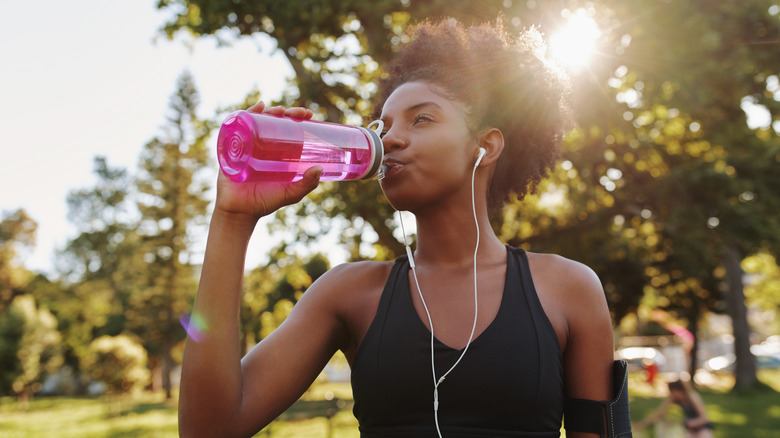The Truth About Drinking Old Water Thats Been Sitting In Your Water Bottle


It’s been a long day. You’re thirsty, and the only water you have has been sitting in your reusable water bottle for a few days. Is it the worst thing in the world to knock it back?
Apparently, it’s not that big of a deal.
Even if you’re concerned about bacteria and germs on the surface, they’re likely just your own on your water bottle. “It’s pretty much just your own germs [on and in your bottle], so there’s not much to worry about,” Charles Gerba, Ph.D., a microbiologist at the University of Arizona, tells Self. “Yeah, you’ll get a lot of bacteria because there’s always wash-back, but basically it’s the bacteria that’s in your mouth anyway, so we’ve never really seen it as an issue.”
Just like your toothbrush, your water bottle likely only has your specific germs on it, making it less of an issue than many may believe. Since they’re unique to you, there’s a very low chance of them making you sick. If you’re sharing a water bottle, on the other hand, you’ll need to be more careful. While the risk of getting sick from this is low, it is something to watch out for when you’re drinking water that’s been stuck inside your bottle because your body isn’t used to those germs. However, there are a few types of water bottles that maintain the lowest risk for contamination.
It's best to use a screw-top water bottle

Just like anything in life, the surfaces that you repeatedly touch with your fingers have a higher risk for contamination. When it comes to your water bottle, you’ll want to make sure that you’re not using one that you have to open and close with your fingertips. Gerba tells Self, “Those are the only ones you see issues with because people’s fingers are contaminated.”
The safest water bottle to use is one that has a twist-on top with a spout that comes nowhere near your fingers. Even if the cap is off, your water should still be safe to drink, the outlet reports. Just make sure to clean the surface you drink off of if it has come into contact with things like your car, purse or desk as these can cause germ transfer.
If you’re planning on storing your water, make sure to prolong its shelf life by keeping it out of direct sunlight and resting at a slightly cool temperature, Healthline notes. Particularly for bottled water, the risk of contamination when placed near chemicals is relatively high. By storing it in a cool, dry place away from cleaning agents, your water will be safer for longer. To double-check, do a sniff test to make sure you don’t smell anything out of the ordinary.
As long as the lid of your bottle hasn’t come into contact with much besides your mouth and it smells okay, the water in your water bottle should be safe to drink for a while.
Source: Read Full Article